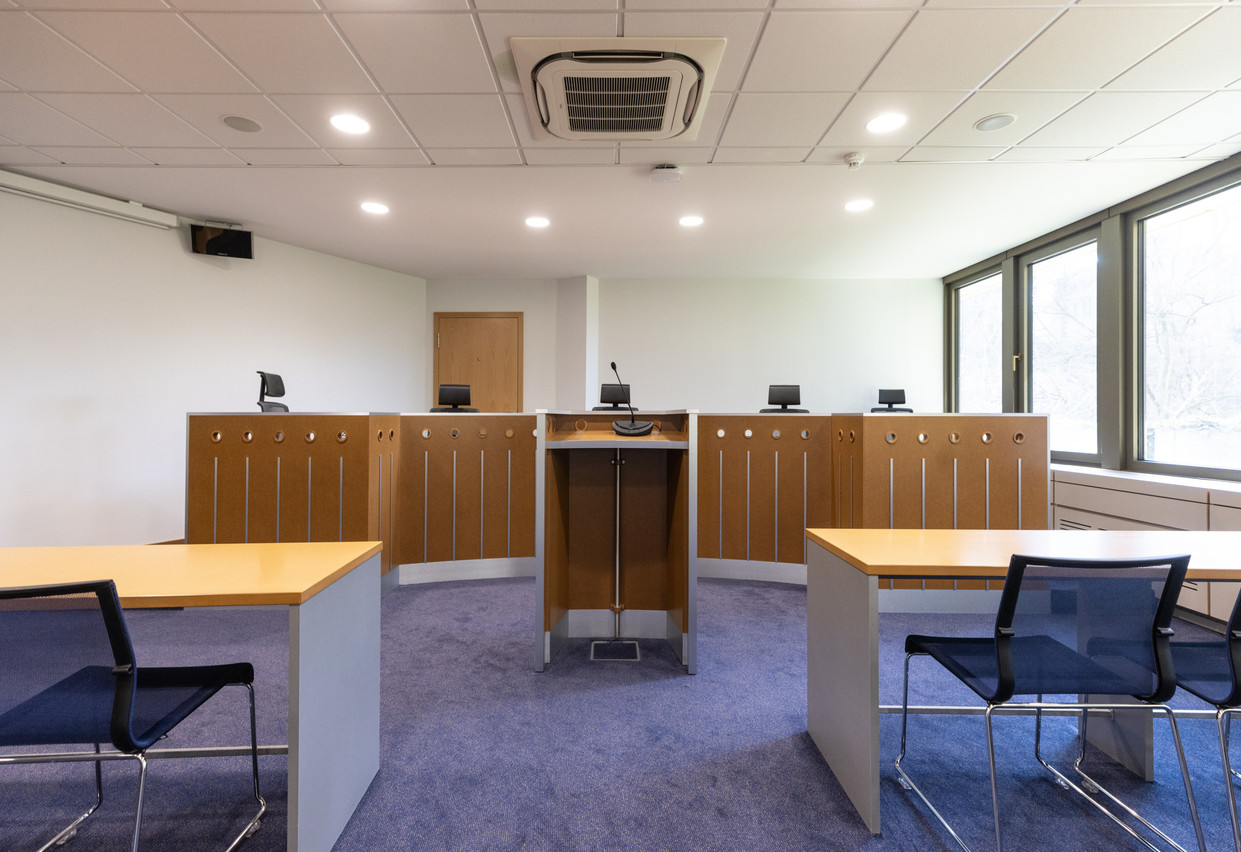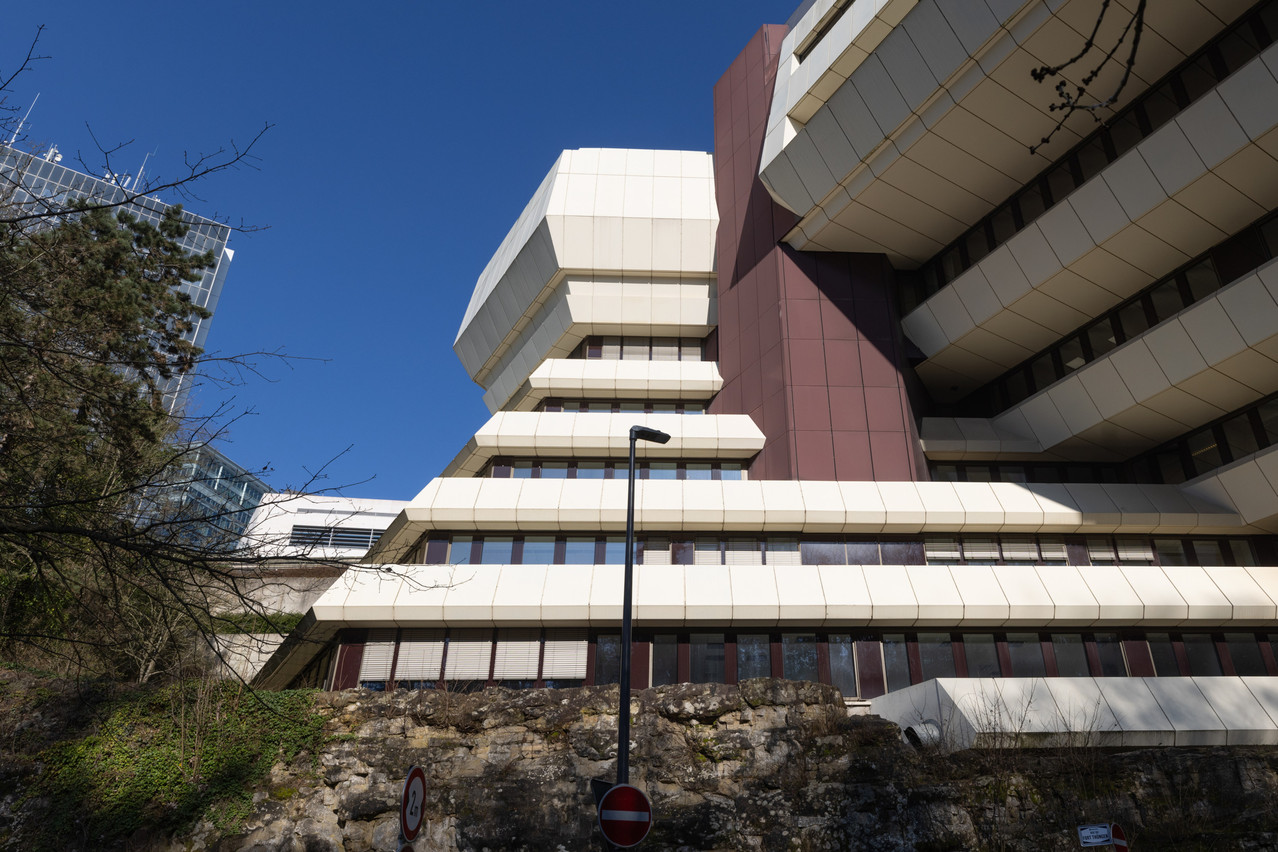has escaped the general public, but not Luxembourg’s tax lawyers: on 15 September 2023, the administrative court inaugurated a fifth section, specially focused on tax. Half a year later, Françoise Eberhard, head of this fifth chamber, and Administrative Court president Marc Sünnen agreed to a rare interview with the press. Delano’s sister publication Paperjam spoke to the two professionals about bottlenecks in the judicial machinery and why speeding up proceedings is desirable.
Paperjam: What led to the creation of the fifth chamber last September?
Marc Sünnen: When the tribunal was set up in 1996, we had two generalist chambers. Over time, we expanded to four chambers without any marked specialisation. The fifth chamber, however, marks a shift towards specialisation, encouraged by the legislator through a multi-year recruitment programme. This development responds to the need for greater expertise in the face of the specialisation of law firms, particularly in tax matters. The decision to create a chamber specialising in tax matters has enabled us to bring together our young magistrates with expertise in tax, as well as a specialist legal secretary.
Did the growing complexity of tax disputes play a role in this decision?
MS: Absolutely--the specialisation indeed coincides with the increasing complexity of tax cases. While some can still be managed with a generalist approach, others require specific expertise. Note that this trend towards technicalisation is not confined to tax law, but extends to other areas too--such as financial regulation, data protection and town planning.
What is the trend in the number and quality of tax cases before the Administrative Court?
Françoise Eberhard: Historically, tax law was not at the forefront of litigation. Immigration law cases dominated, immediately followed by town planning law. However, the trend has changed, with tax law gaining momentum.
MS: Today, immigration law remains predominant, reflecting political developments. Of the new cases in 2022 and 2023, 598 related to immigration law, 217 to tax law and 85 to town planning. In terms of numbers, tax cases are growing steadily and moderately. In terms of quality, as mentioned above, their complexity has increased significantly over the last five years. Legislative changes and increased activity on the part of the direct tax authorities--who have have recruited heavily--are contributing to this trend.
Six months after the introduction of the fifth chamber, how are things going?
MS: Ms Eberhard’s commitment has been crucial to the success of this project. If she hadn’s said she was prepared to chair the fifth chamber, it might never have seen the light of day! This specialisation contributes to better knowledge management and to the overall efficiency of the tribunal.
FE: The creation of this chamber has led to a more structured and efficient approach, making it easier to deal with cases. I also see a benefit in terms of the training taken by magistrates: it is much more targeted. However, with a small team, we can’t work miracles in terms of how quickly we process cases.
What is the typical profile of a tax case handled by the tribunal?
MS: The cases vary greatly, from simple calls for guarantees to extremely complex financial arrangements. This diversity is reflected in the profiles of the litigants, from specialist firms to individuals acting on their own. One aspect of tax litigation is that litigants can represent themselves, without a lawyer. This means that the quality of appeals varies widely.
FE: As the files are often incomplete when they are received, extra effort is needed on the part of the magistrates to fill in the gaps and understand the substance of the case.
MS: There is also a considerable human aspect. When faced with individuals in distress, there is no question of simply rejecting a poorly prepared case.
Is self-representation a recent phenomenon?
MS: No. This possibility dates back to the creation of the tribunal in 1996, largely as a result of lobbying by chartered accountants. Its aim is to make it easier for taxpayers to access justice, while preserving a tradition in which people were already able to appear in person before the Director of Taxes.
FE: In some cases, particularly for minor matters, it may make sense not to hire a lawyer, especially when the sums involved do not justify such a cost.
MS: The question of whether to use a lawyer arises in many disputes, but it is particularly salient in the tax field, where the complexity of cases can quickly exceed the capacity of a non-specialist.
At the moment, it often takes 18 months from the end of the written procedure to the oral hearing. Is there a desire to speed up proceedings?
FE: Yes. For example, we have adopted a paperless approach to speed up the processing of cases. This digitalisation allows us to work more efficiently, whether in court or at home, by facilitating the exchange and analysis of documents.
MS: The delays are the result of a shortage of magistrates, a constant increase in the volume of cases and the growing complexity of the law. This problem is not specific to tax litigation, but concerns all types of litigation--including immigration law, which has become considerably more complex over the years. I will have the opportunity to discuss this with prime minister Luc Frieden, who wants to push ahead with administrative simplification and to reduce delays.
How does the legislator influence these deadlines?
MS: Legislation, often influenced by European law, introduces more guarantees and makes the process more complex. This, combined with the tax authorities’ failure to take a position in certain cases, means that processing times are getting longer.
FE: What adds further pressure are the accelerated procedures imposed by the legislator for certain types of case. These time-sensitive procedures account for a significant proportion of our work. In 2022 and 2023, this concerned 382 cases, or 33% of total litigation. We are witnessing a phenomenon of crowding out, where urgent cases take precedence over others. This calls for a constant reorganisation of our priorities.
MS: The future reform of asylum at European level, which should be approved in June, requires even shorter deadlines. This is a major problem for us. We need to find solutions.
FE: Even for cases that have so far followed a normal procedure, such as refusals of refugee status, the deadlines will be considerably reduced, increasing the pressure on our resources.
What is the current human resources situation at the tribunal?
MS: As of 1 January 2024, our actual staffing levels will be 18 magistrates (one president, two first vice-presidents, five vice-presidents, six first judges and four judges), plus two attachés on provisional service. Although our staff numbers have risen slightly, we face constant challenges in filling all the positions.
FE: This increase in staff numbers is recent and is a direct result of the multi-year plan. Previously, staff increases were rare and often reactive, dependent on legislative developments of which we were not always informed in advance.

The Administrative Court shares a single courtroom--pictured--with the Unified Patent Court. Not enough, says Marc Sünnen. Photo: Guy Wolff/Maison Moderne
Is the fact that judges are recruited jointly with the judiciary an issue?
MS: That represents another challenge. It’s not always easy to select candidates who are interested in and suited to administrative litigation. Our tribunal is rarely the first choice of candidates.
FE: Perhaps this joint recruitment is also a hindrance in that it may dissuade tax specialists from applying, with no guarantee of ending up at the Administrative Court.
MS: The placement of candidates often depends on their ranking in the exams, which can lead them to other jurisdictions despite our need for their expertise. Before 2012, the Administrative Court used to issue a call for applications through the press. Ms Eberhard and I were recruited in this way. Under the current system, I wouldn’t have applied: I wouldn’t have had any certainty of joining the Administrative Tribunal!
How do you overcome the shortage of candidates?
MS: The multi-year recruitment plan is a step in the right direction, but it won’t be enough.
FE: The upcoming increase in the number of referendaries, from two to five, represents a significant help when faced with a limited pool of Luxembourg lawyers. The flexibility in recruiting referendaries allows us to target specific skills.
MS: The introduction of the referendary system, initiated by our court, shows the path towards a new way of conceiving justice in Luxembourg. We need to think about reorienting the role of the magistrate, perhaps taking inspiration from existing models at EU level, with a magistrate who oversees the work and takes the decision, and referendaries who carry it out.
Given all these challenges, what message would you like to get across?
MS: Our relationship with the justice ministry has always been constructive, regardless of political leanings. The fact remains that the current budgetary constraints could have an impact on our recruitment capacity and our operations.
FE: Our concerns also extend to our premises, which have become insufficient to accommodate the additional magistrates envisaged in our development plan.
MS: With only one courtroom--which we share--and a serious lack of space, finding an accommodation solution for the tribunal has become urgent. Spreading magistrates over different sites would be impractical. It would damage our ability to work as a team and share our knowledge.
This article in Paperjam. It has been translated and edited for Delano.
